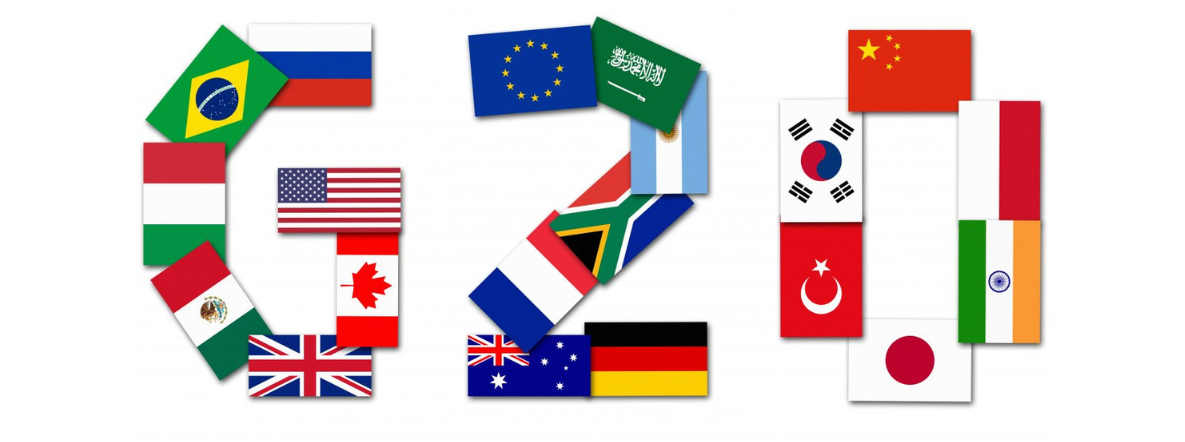View: G20’s ‘historic’ global tax agreement endorsed on Saturday, like the city of Rome, won’t be built in a day
01 Nov 2021
Opinion: Mythili Bhusnurmath
Sad truth is the only time G20 delivered on its promises was when interests of advanced economies were threatened after GFC — with urgency.
Landmark historic pathbreaking — all these words and more have been used to describe the global agreement on corporate tax rates pioneered by the Paris-based Organisation for Economic Cooperation and Development (OECD) that was endorsed by the G20 in Rome on Saturday. The deal formally approved in Rome on Sunday has been hailed for many reasons — for ensuring a fairer allocation of profit and taxing rights among countries; for marking the beginning of the end of a four-decade-long race to the bottom as countries competed to attract investment by offering progressively lower tax rates (at the cost of bleeding public exchequers).
Once implemented tech giants like Amazon and Meta née Facebook will no longer be able to book profits in low-tax countries but will have to pay taxes in countries where their goods or services are sold even if they have no physical presence there. This will adversely impact long holdouts against the agreement like Ireland which sought to attract investment and jobs by taxing MNCs lightly and benefit countries like India that contribute significantly to the customer base of these tech giants but get very little tax revenue.
But before we sing hosannas to the agreement and G20 a forum covering 60% of world population and 80% of the world GDP a few words of caution. One the agreement only sets a floor. So it will not end tax competition. Two like all multilateral agreements whether on climate change or global trade implementation will be a huge challenge more so given G20’s track record.
G20 says its home page was ‘born in 1999 [in the wake of the 1997 economic crisis] as a consultation forum between finance ministers and central bank governors of the world’s major economies’. But it gathered traction only after the 2008 global financial crisis (GFC) when the US under George W Bush proposed to institutionalise it as the main forum for global economic and financial cooperation and raise the level of participation to the level of heads of state and government. Why? Not because the US suddenly realised the importance of multilateralism but because it needed the world to bail out its economy through a coordinated easing of fiscal and monetary policies globally.
Talking Shop Photo-Op Since the US economy recovered G20 has gone back to being just another talking shop a photo-op for global leaders. Though they’ve met every year since 2010 and each summit has concluded with the issue of lofty communiqués these haven’t meant much in concrete terms.
Take the communiqué issued in 2012 at the conclusion of the meet in Los Cabos Mexico: ‘Despite the challenges we all face domestically we have agreed that multilateralism is of even greater importance in the current climate and remains our best asset to resolve the global economy’s difficulties.’ Really?
If ever there was a case for multilateralism it was in 2020 when the world was struggling against the Covid-19 pandemic. But unlike after GFC when two summits — the first in London and then next in Pittsburgh — were held in 2009 and concrete action plans drawn up in 2020 it was each country for itself. As country after country shut their borders and advanced economies cornered vaccine supplies for its own citizens it was clear that ‘multilateralism’ had been dumped by the wayside.
Lip Service Locked
Never mind the lip service to multilateralism since the first summit in 1999 in Berlin. The Riyadh Summit in November 2020 saw more of the same: ‘We stand united in our conviction that coordinated global action solidarity and multilateral cooperation are more necessary today than ever to overcome current challenges…. We will spare no effort to ensure [distribution of safe and effective Covid-19 diagnostics therapeutics and vaccines] their affordable and equitable access for all people…’
The sad truth is that the only time G20 delivered on its promises was when interests of advanced economies particularly of the US were threatened after GFC — with urgency. But slow-burning crises like climate change inequality tax evasion that affect global rather than US well-being cut little ice.
So for all the cheering that has greeted the global tax agreement the reality is that we are unlikely to get very far. Not until advanced economies also signatories to the agreement suit action to words and crack down on tax havens in their own territories. An unlikely prospect.
Wilmington (home to Joe Biden) in Delaware for instance is widely acknowledged as an onshore tax haven. Asingle building in Wilmington is reportedly home to no less than 300000 businesses. Likewise the British government has consistently turned a blind eye to tax havens in its overseas territories and crown dependencies like the Isle of Man Cayman Islands Guernsey Jersey and Bermuda.
As India gets ready to don the mantle of the G20 presidency in December 2022 it is important to get real. Push for implementation of the tax deal. But remember Rome was not built in a day. Like the city in which the agreement was signed it’s going to be an uphill task. The trick is to keep talking.
(Disclaimer: The opinions expressed in this column are that of the writer. The facts and opinions expressed here do not reflect the views of www.economictimes.com.)






